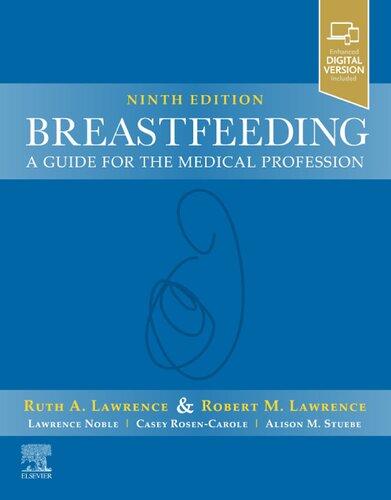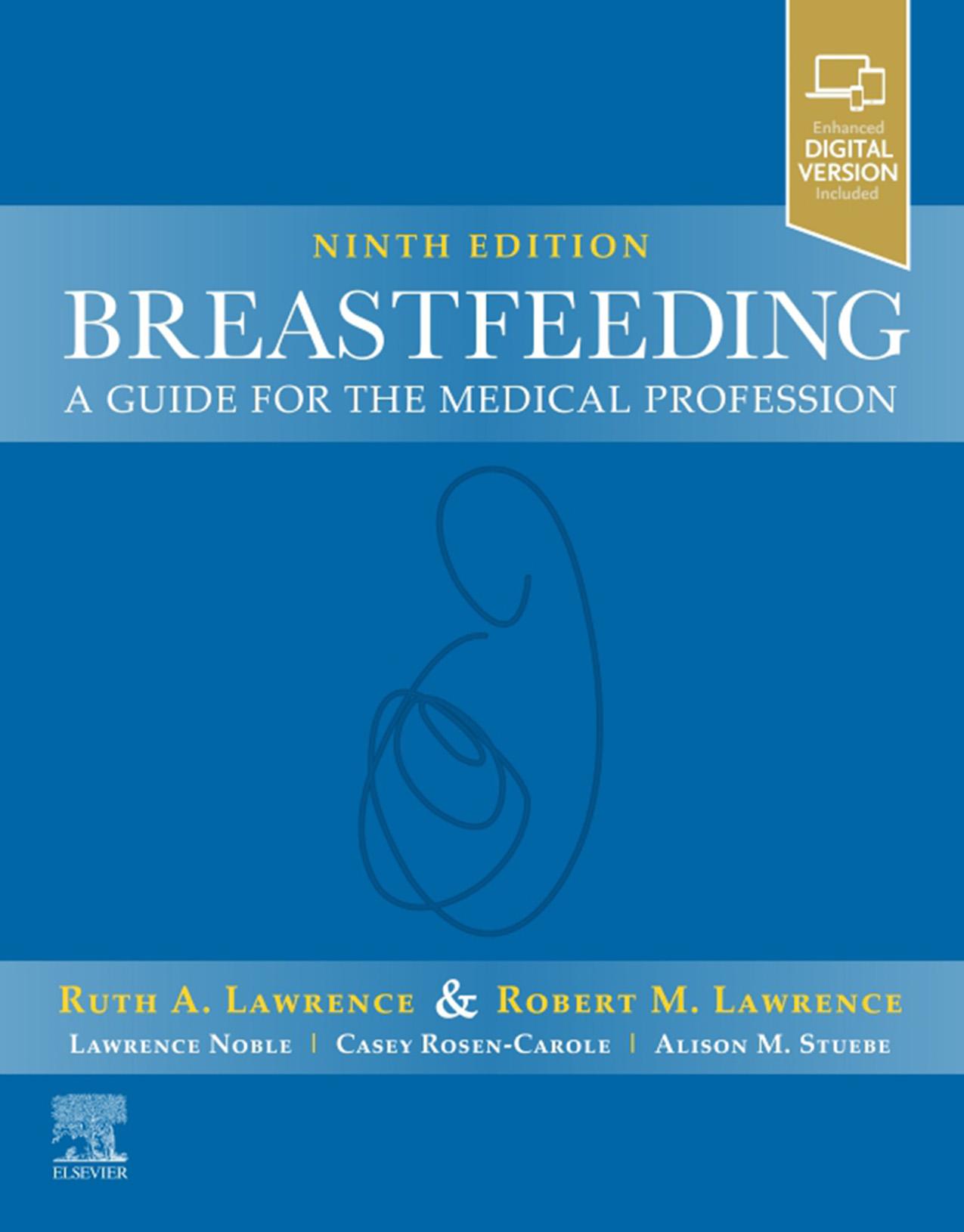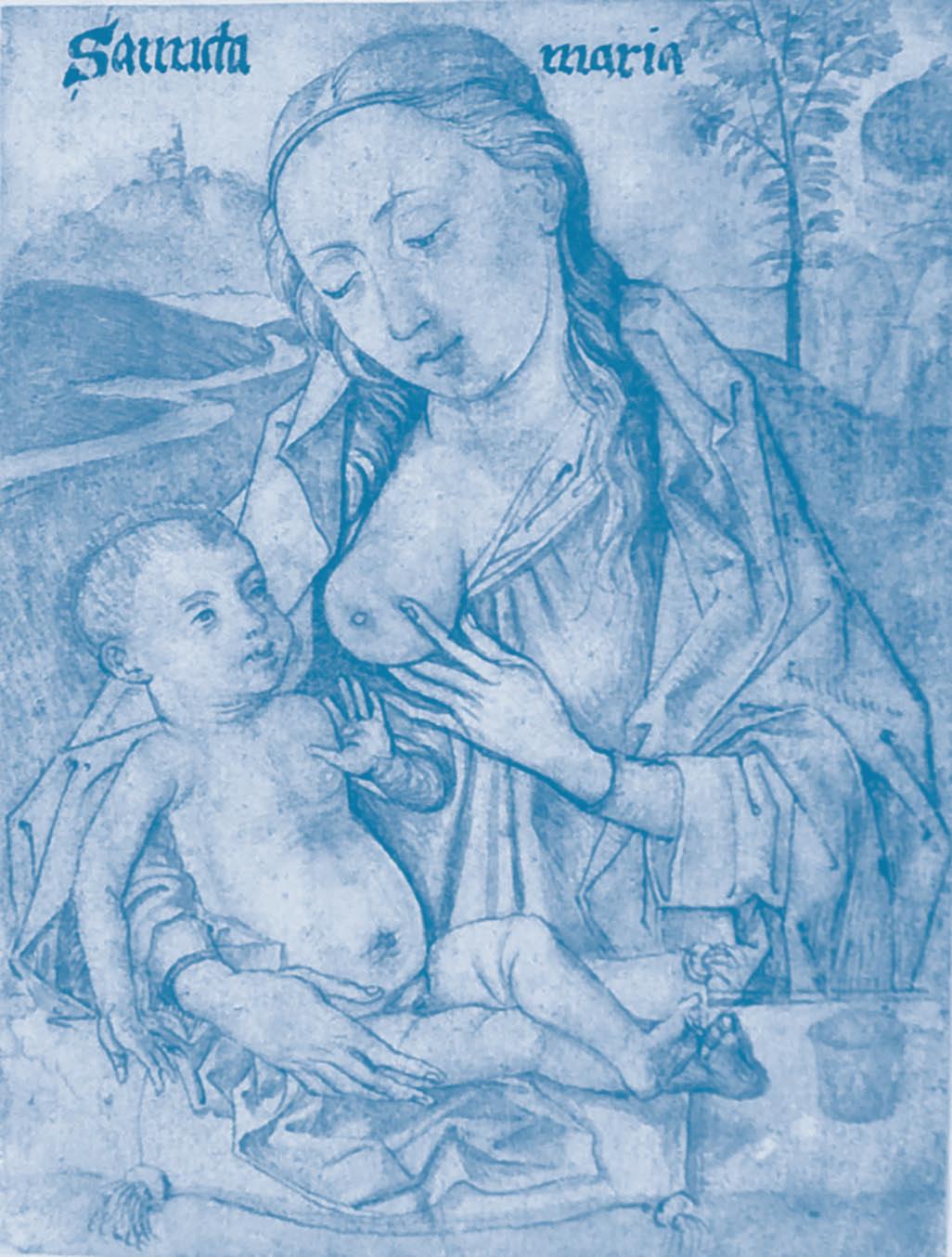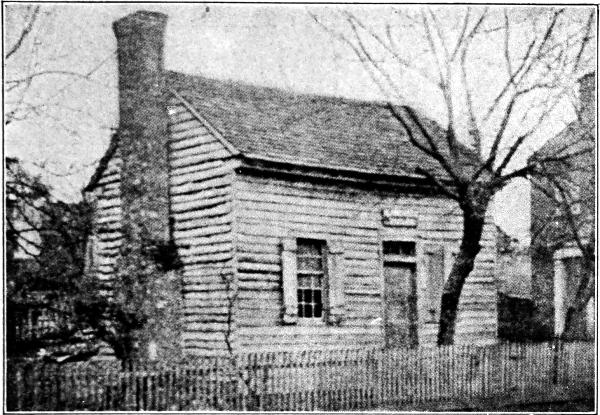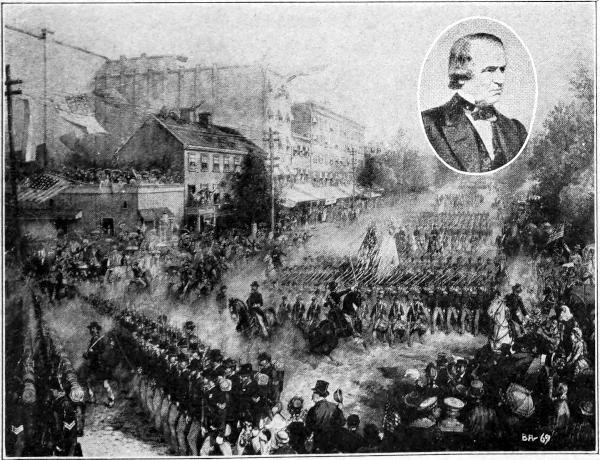BREASTFEEDING
AGUIDEFORTHEMEDICALPROFESSION
Editedby
R UTH A.L AWRENCE
NorthumberlandTrustChairand DistinguishedAlumnaProfessor DepartmentofPediatrics,Obstetricsand Gynecology;UniversityofRochesterSchoolof MedicineandDentistryRochester,NewYork
AssociateEditors
L AWRENCE N OBLE
AssociateProfessor,DepartmentofPediatrics, IcahnSchoolofMedicineatMountSinai, NewYork,NewYork;Divisionof Neonatology,DepartmentofPediatrics, NewYorkCityHealth 1 Hospitals, Elmhurst,NewYork
R OBERT M.L AWRENCE
AdjunctClinicalProfessorofPediatrics DepartmentofPediatrics UniversityofFloridaCollegeofMedicine Gainesville,Florida
C ASEY R OSEN -C AROLE
AssistantProfessorofPediatricsand ObstetricsandGynecology,Universityof RochesterSchoolofMedicineandDentistry, MedicalDirectorofLactationServicesand Programs,UniversityofRochesterMedical Center,Rochester,NewYork
A LISON M.S TUEBE
ProfessorofMaternal-FetalMedicine, DepartmentofObstetricsandGynecology, UniversityofNorthCarolinaSchoolof Medicine,DistinguishedProfessorofInfant andYoungChildFeeding,Departmentof MaternalandChildHealth,Universityof NorthCarolinaGillingsSchoolofGlobal PublicHealth,ChapelHill,NorthCarolina
Elsevier 1600JohnF.KennedyBlvd. Ste1800 Philadelphia,PA19103-2899
BREASTFEEDING:AGUIDEFORTHEMEDICALPROFESSION,NINTHEDITIONISBN:978-0-323-68013-4
Copyright © 2022byElsevier,Inc.Allrightsreserved
Nopartofthispublicationmaybereproducedortransmittedinanyformorbyanymeans,electronicor mechanical,includingphotocopying,recording,oranyinformationstorageandretrievalsystem,without permissioninwritingfromthepublisher.Detailsonhowtoseekpermission,furtherinformationaboutthe Publisher’spermissionspolicies,andourarrangementswithorganizationssuchastheCopyrightClearance CenterandtheCopyrightLicensingAgency,canbefoundatourwebsite: www.elsevier.com/permissions ThisbookandtheindividualcontributionscontainedinitareprotectedundercopyrightbythePublisher (otherthanasmaybenotedherein).
Notice
Practitionersandresearchersmustalwaysrelyontheirownexperienceandknowledgeinevaluatingand usinganyinformation,methods,compoundsorexperimentsdescribedherein.Becauseofrapidadvances inthemedicalsciences,inparticular,independentverificationofdiagnosesanddrugdosagesshouldbe made.Tothefullestextentofthelaw,noresponsibilityisassumedbyElsevier,authors,editors,or contributorsforanyinjuryand/ordamagetopersonsorpropertyasamatterofproductsliability, negligenceorotherwise,orfromanyuseoroperationofanymethods,products,instructions,orideas containedinthematerialherein.
Previouseditionscopyrighted2016,2011,2005,1999,1994,1989,1985,1980.
LibraryofCongressControlNumber:2020950231
Publisher:SarahE.Barth
Director,ContentDevelopment:RebeccaGruliow
SeniorContentDevelopmentSpecialist:AnneE.Snyder
PublishingServicesManager:ShereenJameel
ProjectManager:ManikandanChandrasekaran
CoverDesignandDesignDirection:RyanCook
PrintedintheUnitedStatesofAmerica
Lastdigitistheprintnumber:987 654321
Inlovingmemoryof JohnCharlesLawrence
March5,1966,toOctober9,2008 and RobertMarshallLawrence,MD June28,1923,toAugust13,2005
RuthA.Lawrence
Sincerelydedicatedto allofthehealthprofessionalswhocontinuetosupportwomen intheireffortstobreastfeedtheirchildren
RobertM.Lawrence
Thispageintentionallyleftblank
CindyCalderon-Rodriguez,MD, FAAP
President(2019 2021)ofthePuertoRico ChapteroftheAmericanAcademyof Pediatrics,SanJuan,PuertoRico
MelissaJ.Chen,MD,MPH AssistantProfessorofObstetricsand Gynecology,DepartmentofObstetrics andGynecology,Universityof CaliforniaDavisMedicalCenter, Sacramento,California
KatherineBlumoffGreenberg,MD AssociateProfessorofAdolescent MedicineandGeneralGynecology, DepartmentsofPediatricsand Obstetrics/Gynecology,Universityof RochesterSchoolofMedicineand Dentistry,Rochester,NewYork
IvanL.Hand,MD,FAAP DirectorofNeonatology,KingsCounty Hospital,ProfessorofPediatrics, SUNYDownstateSchoolofMedicine, Brooklyn,NewYork
HelenM.Johnson,MD,IBCLC ResidentPhysician,Departmentof Surgery,EastCarolinaUniversity/ VidantMedicalCenter,Greenville, NorthCarolina
RobertM.Lawrence,MD,FABM
AdjunctClinicalProfessorofPediatrics, DepartmentofPediatrics,University ofFloridaCollegeofMedicine, Gainesville,Florida
RuthA.Lawrence,MD,DD(Hon), FABM,FAAP
NorthumberlandTrustChairand DistinguishedAlumnaProfessor, DepartmentofPediatrics,Obstetrics andGynecology,Universityof RochesterSchoolofMedicine andDentistry,Rochester, NewYork
KatrinaB.Mitchell,MD,IBCLC, FACS
BreastSurgicalOncologistandLactation Consultant,SurgicalOncology,Ridley TreeCancerCenteratSansumClinic, SantaBarbara,California
AnitaNoble,DNSc,CNM,CTN-A, IBCLC
Lecturer,HenriettaSzold/HadassahHebrewUniversity,Schoolof Nursing,FacultyofMedicine, Jerusalem,Israel
LawrenceNoble,MD,FAAP,FABM, IBCLC
AssociateProfessor,Departmentof Pediatrics,IcahnSchoolofMedicineat MountSinai,NewYork,NewYork; DivisionofNeonatology,Department ofPediatrics,NewYorkCityHealth 1 Hospitals,Elmhurst,NewYork
CaseyRosen-Carole,MD,MPH,MSEd AssistantProfessorofPediatricsand ObstetricsandGynecology,University ofRochesterSchoolofMedicineand Dentistry,MedicalDirectorof LactationServicesandPrograms, UniversityofRochesterMedical Center,Rochester,NewYork
AlisonM.Stuebe,MD,MSc ProfessorofMaternal-FetalMedicine, DepartmentofObstetricsand Gynecology,UniversityofNorth CarolinaSchoolofMedicine, DistinguishedProfessorofInfantand YoungChildFeeding,Departmentof MaternalandChildHealth,University ofNorthCarolinaGillingsSchoolof GlobalPublicHealth,ChapelHill, NorthCarolina
Thispageintentionallyleftblank
Forewordreprintedfromthe8thedition,withfootnotesaddedfor the9thedition:The5yearssincethepublicationoftheseventh editionofthisexcellentbookhavebeenatimeofincredible advancesinunderstandingseveralpreviouslyunknownphysiologicandbehavioralprocessesdirectlylinkedtoorassociatedwith breastfeedingandbeautifullydescribedinthisnewvolume.
Thesefindingschangeourviewofthemother infantrelationshipandsignalanurgentneedtocompletelyreviewpresentperinatalcareprocedures.Thesenewresearchresultsincludethe observationthatwhenaninfantsucklesfromthebreast,thereisa largeoutpouringof19differentgastrointestinalhormones,includingcholecystokinin,gastrin,andinsulin,inbothmotherand infant.Severalofthesehormonesstimulatethegrowthofthebaby’ s andthemother’sintestinalvilli,thusincreasingthesurfaceareafor theabsorptionofadditionalcalorieswitheachfeeding.Thestimulus forthesechangesistouchingthenippleofthemotherortheinside oftheinfant’smouth.Thestimulusinbothinfantandmother resultsinthereleaseofoxytocinintheperiventricularareaofthe brain,whichleadstoproductionofthesehormonesviathevagus nerve.Thesepathwayswereessentialforsurvivalthousandsofyears ago,whenperiodsoffaminewerecommon,beforethedevelopment ofmodernagricultureandthestorageofgrain.
Thediscoveryoftheadditionalsignificanceofamother’ s breastandchesttotheinfantcomesfromthestudiesofSwedish researcherswhohaveshownthatanormalinfant,placedonthe mother’schest,andcoveredwithalightblanket,willwarmor maintainbodytemperatureaswellasaninfantwarmedwithelaborate,high-techheatingdevices.Thesameresearchersfoundthat, wheninfantsareskin-to-skinwiththeirmothersforthefirst90 minutesafterbirth,theyhardlycryatallcomparedwithinfants whoaredried,wrappedinatowel,andplacedinabassinet.In addition,theresearchersdemonstratedthatifanewbornisleft quietlyonthemother’sabdomenafterbirthheorshewill,after about30minutes,graduallycrawluptothemother’sbreast,find thenipple,self-attach,andstarttosuckleonhisorherown.
Itwouldappearthateachofthesefeatures thecrawlingabilityoftheinfant,theabsenceofcryingwhenskin-to-skinwiththe mother,andthewarmingcapabilitiesofthemother’schest evolvedgeneticallymorethan400,000yearsagotohelppreserve theinfant’slife.
Researchfindingsrelatedtothe1991BabyFriendlyHospital Initiative(BFHI)oftheWorldHealthOrganizationandUnited NationsInternationalChildren’sEmergencyFundprovidedinsight intoanadditionalbasicprocess.AftertheintroductionoftheBFHI, whichemphasizedmother infantcontactwithanopportunityfor sucklinginthefirst30minutesafterbirthandmother infant rooming-inthroughoutthehospitalstay,therehasbeenasignificant dropinneonatalabandonmentreportedinmaternityhospitalsin Thailand,CostaRica,thePhilippines,andSt.Petersburg,Russia.
Akeytounderstandingthisbehavioristheobservationthat,if thelipsofaninfanttouchthemother’snippleinthefirsthalf houroflife,themotherwilldecidetokeeptheinfantinherroom 100minuteslongeronthesecondandthirddaysofhospitalization thanamotherwhoseinfantdoesnottouchhernippleinthefirst 30minutes.Itappearsthattheseremarkablechangesinmaternal behaviorareprobablyrelatedtoincreasedbrainoxytocinlevels shortlyafterbirth.Thesechanges,inconjunctionwithknown sensory,physiologic,immunologic,andbehavioralmechanisms,
attractthemotherandinfanttoeachotherandstarttheirattachment.Aspointedoutbackinthefifthedition,astrong,affectionatebondismostlikelytodevelopsuccessfullywithbreastfeeding, inwhichclosecontactandinteractionoccurrepeatedlywhenan infantwishesandatapacethatfitstheneedsandwishesofthe motherandtheinfant,resultingingratificationforboth.Thus breastfeedingplaysacentralroleinthedevelopmentofastrong mother infantattachmentwhenbegunwithcontactimmediately afterbirth,whichinturnhasbeenshowntobeasimplemaneuver tosignificantlyincreasethesuccessofbreastfeeding.Allofthese excitingfindingsprovidefurtherevidenceofwhybreastfeeding hasbeensocrucialinthepastanddeservesstrongsupportnow.
Inaddition,thepastfewyearshavebeenassociatedwithfundamentalbiochemicalfindings,includingtheimportanceofdocosahexaenoicacid(DHA)inoptimalbraindevelopment.Allinall, themanynewobservationsdescribedinthiseighthedition place milkandtheprocessofbreastfeedinginakeypositioninthe developmentofmanycriticalfunctionsinhumaninfantsandtheir mothers.Wesalutetheauthorforherspecialskillinbringing togetherthesemanyuniqueandoriginalobservationsinthisnew andmostvaluablebook.†
SUGGESTEDREADING
ChristenssonK,CabreraT,ChristenssonE,etal.Separationdistresscallinthehumanneonateintheabsenceofmaternal bodycontact.In:ChristenssonK,ed.CareoftheNewborn Infant:SatisfyingtheNeedforComfortandEnergy Conservation [thesis].Stockholm:KarolinskaInstitute;1994. ChristenssonK,SilesC,MorenoL,etal.Temperature,metabolic adaptationandcryinginhealthynewborncaredforskin-toskinorinacot. ActaPaediatrScand.1992;81:488.
KlausM,KlausP.AcademyofBreastfeedingMedicineFounder’ s Lecture2009:maternitycarere-evaluated. BreastfeedMed. 2010;5(3):3.
Uvnäs-MobergK.Thegastrointestinaltractingrowthandreproduction. SciAm.1988;261:78.
WidströmAM,Ransjo-ArvidsonAB,ChristenssonK,etal. Gastricsuctioninhealthynewborninfants:effectsoncirculationanddevelopingfeedingbehavior. ActaPaediatrScand. 1987;76:566.
WidströmAM,WahlbergV,MatthiesenAS,etal.Short-term effectsofearlysucklingandtouchofthenippleonmaternal behavior. EarlyHumDev.1990;21:153.
JohnH.Kennell(1922 2013) MarshallH.Klaus(1927 2017)
andninthedition
† RuthA.Lawrenceremainstheseniorauthorandeditorofthis book,althoughhereldestsonassistsherandtherearethreenew associateeditorsfortheninthedition.Seetitlepageand contributors.
Thispageintentionallyleftblank
Almostfivedecadesago,workbeganonthefirsteditionof thistext.Muchhaschangedinthefieldofhumanlactation andintheworldatlarge.Thetrickleofscientificworkonthe subjectin1975hasswollenintoariveroverflowingitsbanks. TheLactationStudyCenterattheUniversityofRochester hasmorethan50,000documentsinitsdatabasethatdescribe peer-reviewedscientificstudiesandreports,andeveryyear therearenewcontrolledtrials,systematicreviews,metaanalyses,andcost-basedanalysesofbreastfeedingandtheuse ofhumanmilk.Thefieldoflactationresearchhasmovedto themolecularandthegeneticlevelstoanalyzethechemical andcomponentnatureofbreastmilkandhowthatinfluences theinfant’sgrowthanddevelopmentandlaterimmunologic, allergic,metabolic,andoverallhealth.Publichealthresearch continuestoexaminetheshort-termandlong-termbenefits ofbreastmilkandbreastfeedingfortheinfantandthe mother.Clinicalresearchseekstoapplyevidenced-baseddata tothepractice,experience,andsupportofbreastfeeding withincommunitiesandforindividualwomenandfamilies. Itisnotsimplytheapplicationofspecificprotocolsandpoliciesbutthoughtfulconsiderationandindividualizedsupport forthebreastfeedingmother-infantdyadthatleadstoa motherreachingherbreastfeedinggoals.
Thenintheditionofthistextissymbolic,inthatDr.Ruth Lawrenceraisedninechildrenbeginningwithbreastfeeding eachone.Thisexperienceintimatelyconnectedherwiththe roleandeffortsrequiredofabreastfeedingmother.Itwasthis experience,withintellectualcuriosityandrecognitionofthe importanceofbreastmilkandbreastfeedingtothehealthof thematernal infantdyad,thatledtoherpersistenceinthe studyofbreastfeedingandthecreationofnineeditions.Over theyears,severalofherchildrenhavecontributedindifferent waystoitspublication,andnowhergrandchildren MadeleineMorris,NathanielLawrence,andJacksonMorris haveaddedtheirkindandlovingassistancetothebookand their “Grammy.”
Theintentofthisvolumeremainstoprovidethebasic toolsofknowledgeandexperiencethatwillenableaclinician toprovidethoughtfulcounselingandguidancetothebreastfeedingfamilythatismostapplicabletotheparticularbreastfeedingdyadandthecircumstances,problems,andlifestyle involved.Giventhespeedwithwhichmedicalandscientific informationaboutbreastmilkandbreastfeedingisexpanding,thesimplepresentationofcurrentalgorithms,guidelines, recommendations,andprotocolswillbeinadequatetofoster thoughtfulcounselingandguidance.Withthatchallengein mindfacingthenintheditionwehaveinvitedthreeassociate editorsandseveraladditionalphysiciansandscientistsas authorstodevelopthisedition.
TheassociateeditorsincludeDr.CaseyRosen-Carole, MedicalDirectorofLactationServicesandProgramsatthe UniversityofRochester;Dr.LawrenceNoble,aperinatology andneonatologyspecialistandpreviouslyontheexecutive
committeeoftheAmericanAcademyofPediatrics’ Section onBreastfeeding;andDr.AlisonStuebe,InterimDirectorof theDivisionofMaternal-FetalMedicineandMedical DirectorofLactationServicesatUniversityofNorthCarolina andpastpresidentoftheAcademyofBreastfeeding Medicine.Theyareeachinternationalboard-certifiedlactationconsultants(IBCLCs)andfacultymembersofthe AcademyofBreastfeedingMedicine(FABM).Seethe Contentslistingonpagexiiifortheseeditors’ extensivecontributions.Thenewauthorsalsobroughtspecificknowledge andexperiencerelatedtobreastfeedingandinfant,maternal, andfamilyhealth.Dr.KatherineBlumoffGreenberg,aspecialistinadolescentmedicineandLGBTQ 1 health,contributedtoanewchapter,ChestfeedingandLactationCarefor LGBTQ1 Families(Lesbian,Gay,Bisexual,Transgender, Queer,Plus).Dr.CindyCalderon,apediatricianinPuerto RicoandactivememberoftheAAPandABM,oversawthe chapteronInfantFeedingAfteraDisaster.Dr.IvanHand, DirectorofNeonatologyatSUNY,Downstate,King’sCounty HospitaladdedhisexpertisetothechapteronPremature InfantsandBreastfeeding.Dr.HelenJohnsonandDr. KatrinaMitchell,IBCLCandFABM,broughttheirexperienceingeneralsurgeryandexpertiseinbreastsurgerytoa newseparatechapteraddressingBreastConditionsinthe BreastfeedingMother.Dr.AnitaNoblecontributedher expertiseasatransculturalscientistandscholartothechapter ontheCollectionandStorageofHumanMilkandHuman MilkBanking.Dr.MelissaChencollaboratedwithDr.Alison StuebeforthechapteronReproductiveFunctionDuring Lactation.
Keyareasonanatomyandphysiologyoflactation,medicationsinbreastmilk,transmissionofinfectiousdiseases throughbreastmilk,allergyanditsrelationshiptobreastfeeding,andallergenexposureandavoidancehavebeenupdated forthisedition.Importantevolvingtopicshavebeen expandedwiththenewestinformation,suchasthecellular compositionofbreastmilkanditsimportancetomaternal andinfanthealth,themicrobiotaofthebreastandhuman milkanditspossiblerolesinmetabolismandinfantimmunity,reproductivejusticeandcontraceptiveequity,theroleof patient-centeredcounselingasacrucialskillforclinicians communicatingwithwomenandfamiliesaboutinfantfeeding,themultifunctionalroleofhumanmilkoligosaccharides innutrition,immunityandgastrointestinaldevelopment, breastfeedingandchestfeedinginLGBTQ 1 families,and breastsleeping.Thechaptersonthebreastfeedingmanagementofinfantswithproblemsandtheuseofhumanmilkfor prematureinfantshaveexpandeddataanddiscussion.Four newchaptershavebeenaddedtothisedition:Breast ConditionsintheBreastfeedingMother;Chestfeedingand LactationCareforLGBTQ 1 Families;InfantFeedingAftera Disaster;andEstablishingaBreastfeedingMedicinePractice orAcademicDepartment.
Withthenintheditionsecureonline,wehaveanumberof individualstothank.
WethankJaneEggimanagainforprovidinginvaluable supportasshehasforpasteditionsandZoeBlackwhorescuedfreshinformationfromlibraryarchivesanddatabases, searchingoutmanycitations,bibliographies,andelusive details.Wethankallthelactationconsultantsandmedicaldoctorswhohavecalledthelactationcenterwiththeirchallenging clinicalissuesandquestions.Wesincerelyappreciatethemany physiciansandscientistswhocontinuebreastmilkandlactation researchworldwide.WecontinuetobegratefultoRosemary Disney(1923 2014)forthecreationoftheenduringbreastfeedingsymbolonthecover.WeareindebtedtoDr.Rich MillerattheUniversityofRochesterforhiscontinuedsupport oftheLactationStudyCenterandourworkonthisnewestedition.Wethanktheteamofexpertsatourpublisher,Elsevier andespeciallycontentstrategistSarahBarthandSenior
ContentDevelopmentSpecialistAnneSnyderfortheiroutstandingsupport,patience,andperseveranceinbringingthe nintheditiontofruition.Wearegratefultothenewassociate editorsandtheauthorsfortheirexpertise,insight,professionalism,andinvaluablecontributionstotherichnessandcompletenessofthisninthedition.Finally,wewouldliketogenuinely thankthereadersofthisninthedition.Weapplaudyourefforts forpromotionandsupportofbreastfeeding,lactation,anduse ofbreastmilk.Wehumblyofferthistextasastartingpointto garnerexistingknowledgeonbreastfeeding,andtostimulate noveldiscussion.Wehopethiseditionwilladvanceacontinued searchfornewinformationandanswerstotheissuesand dilemmasfacingbreastfeedingmothersandtheirinfantsand families.
RuthA.Lawrence
RobertM.Lawrence
1 BreastfeedinginaNewEra,1
RobertM.LawrenceandRuthA.Lawrence
2 AnatomyoftheBreast,38
RuthA.Lawrence
3 PhysiologyofLactation,58
RuthA.Lawrence
4 BiochemistryofHumanMilk,93
RuthA.Lawrence
5 Host-ResistanceFactorsandImmunologicSignificance ofHumanMilk,145
RobertM.Lawrence
6 PopulationHealthandInformedFeedingDecisions,193
AlisonM.Stuebe
7 PracticalManagementoftheNursing“Dyad”,206
CaseyRosen-CaroleandAlisonM.Stuebe
8 MaternalNutritionandSupplementsforMotherand Infant,247
RuthA.Lawrence
9 Weaning,278
RuthA.Lawrence
10 NormalGrowth,GrowthFaltering,andObesityin BreastfedInfants,298
RobertM.LawrenceandRuthA.Lawrence
11 Medications,HerbalPreparations,andNatural ProductsinBreastMilk,326
RobertM.LawrenceandRuthA.Lawrence
12 TransmissionofInfectiousDiseasesThroughBreast MilkandBreastfeeding,393
RobertM.Lawrence
13 BreastfeedingInfantsWithProblems,457 LawrenceNobleandCaseyRosen-Carole
14 PrematureInfantsandBreastfeeding,502
IvanL.HandandLawrenceNoble
15 MedicalComplicationsofMothers,546
AlisonM.Stuebe
16 BreastConditionsintheBreastfeedingMother,572
KatrinaB.MitchellandHelenM.Johnson
17 HumanMilkandAtopicDisease,594
RobertM.LawrenceandRuthA.Lawrence
18 BreastfeedingandReturntoWorkorSchool,611
RuthA.Lawrence
19 InducedLactationandRelactation(IncludingNursing anAdoptedBaby)andCross-Nursing,628 RuthA.Lawrence
20 ChestfeedingandLactationCareforLGBTQ 1 Families (Lesbian,Gay,Bisexual,Transgender,Queer,Plus),646 CaseyRosen-CaroleandKatherineBlumoffGreenberg
21 ReproductiveFunctionDuringLactation,651 AlisonM.StuebeandMelissaJ.Chen
22 TheCollectionandStorageofHumanMilkandHuman MilkBanking,662 LawrenceNobleandAnitaNoble
23 InfantFeedingAfteraDisaster,695
CindyCalderon-RodriguezandLawrenceNoble
24 EstablishingaBreastfeedingMedicinePracticeor AcademicDepartment,704
CaseyRosen-Carole
25 BreastfeedingSupportGroupsandCommunity Resources,710
RuthA.Lawrence
26 EducatingandTrainingMedicalProfessionals,719 CaseyRosen-Carole
Appendices
AppendixA:CompositionofHumanMilk,729 RuthA.Lawrence
AppendixB:NormalSerumValuesforBreastfedInfants,731 RuthA.Lawrence
AppendixC:HerbalsandNaturalProducts,733 RuthA.Lawrence
AppendixD:PrecautionsandBreastfeeding RecommendationsforSelectedMaternalInfections,738 RobertM.Lawrence
AppendixE:ManualExpressionofBreastMilk,754 CaseyRosen-Carole
AppendixF:MeasurementsofWeightLossandGrowthin BreastfedInfants,756 CaseyRosen-Carole
AppendixG:OrganizationsSupportingBreastfeedingand PromotingLactationKnowledge,761 RobertM.Lawrence
AppendixH:BreastfeedingHealthSupervision,768 AlisonM.Stuebe
AppendixI:
ABMClinicalProtocol#1:GuidelinesforBloodGlucose MonitoringandTreatmentofHypoglycemiainTermand Late-PretermNeonates,Revised2014,782
ABMClinicalProtocol#2:GuidelinesforHospitalDischargeof theBreastfeedingTermNewbornandMother:“TheGoing HomeProtocol,”Revised2014,790
ABMClinicalProtocol#3:SupplementaryFeedingsinthe HealthyTermBreastfedNeonate,Revised2017,796
ABMClinicalProtocol#4:Mastitis,RevisedMarch2014,807
ABMClinicalProtocol#5:PeripartumBreastfeeding ManagementfortheHealthyMotherandInfantatTerm, Revision2013,812
Another random document with no related content on Scribd:
squares were still occupied by camps, and all available structures, converted into hospitals, were filled to overflowing with wounded soldiers.
Washington’s streets were notorious for their clouds of dust or wallows of sticky mud. As the dust prevailed at this period, the services of the Fire Department were necessary on both mornings to sprinkle the line of march to make the passing of the procession fairly comfortable for marchers and onlookers. Patrols guarded the intersections.
Upon the grassy hillsides and steps of the Capitol were massed the city’s school children in gala dress, with wreaths, flags, and bouquets, ready to greet the conquering hosts with patriotic songs. Four gaily decorated reviewing stands were erected in front of the White House for officials and celebrities. With the President were the members of the Cabinet and General U. S. Grant. Every window, roof, and tree presented its full limit of spectators while every foot of standing room along the entire line of march was filled with enthusiastic people.
With military promptness, on each morning at 9 o’clock, the great divisions of the army began their movement down Capitol Hill. The Army of the Potomac, with General George A. Meade commanding, occupied the entire day on Tuesday in passing in review, while Sherman’s army, with its two wings—the Army of Tennessee commanded by Major General John A. Logan, affectionately called “Black Jack” by his men because of his swarthy complexion, and the Army of Georgia, in command of Major General Henry D. Slocum— kept a weary audience shouting applause until dark on Wednesday. Before the columns started, the young women and girls of the city decked officers, men, horses, cannon, and guns with floral wreaths, garlands, and bouquets, and as each officer passed, he received a special ovation.
Brevet Major General George M. Custer, in command of the cavalry of the Army of the Potomac, was a picturesque figure, mounted upon a handsome stallion, his long hair reaching to his shoulders.
Just as the procession turned into Pennsylvania Avenue from Fifteenth Street, the onlookers were horrified to see his horse rear and wildly dash up the street. The General’s hat flew off, and everyone expected to see him pitched to the ground and killed. But fears were turned to shouts of admiration at his horsemanship when he suddenly quieted the horse, turned, and rode back to his place, picking up his hat as easily as if he had planned the performance. In fact, such a charge was made. Every man in his contingent wore the Custer tie, a red scarf around the neck and extending almost to the belt.
A slowly increasing roar of applause greeted the coming of Sherman and Major General Oliver O. Howard, whose empty sleeve was an eloquent testimony of his service. These two rode a little in advance —horses flower decked and wreathed—and after they passed the reviewing stand, they too dismounted and joined the receiving party. Spectators and marchers alike thrilled over the battle-torn flags that brought forth such storms of applause as they appeared. One flag alone drew every eye but no applause. It hung from the portico of the Treasury building—the flag of the Treasury Guard Regiment a flag never to be forgotten. The lower portion was torn and jagged, not by bullet or shell, but by the spur on the boot of Booth the assassin, when he had jumped from the presidential box to the stage in Ford’s Theatre.
No military pageant in the history of the world had ever surpassed or equalled this review in size or character. The four years of constant conflict with a foe equally fine in every respect as themselves had battered, trained, and polished the raw recruits of the North, who had responded so quickly to President Lincoln’s call for volunteers, into the finest military organization in the world, unmatched anywhere save by their Confederate antagonists, also trained in the same rigorous school of experience.
From early morning until dark, on each day, eighty thousand bronzed patriots, in a column reaching from curb to curb, tramped up Pennsylvania Avenue to the triumphant music of their bands.
Powerful, grim, relentless, they typified the rigours of war. Upon them still was the atmosphere of the conquest of half a continent reflected in their resolute faces and their worn clothes. No dressparade soldiers were these. They were men who had witnessed and experienced every phase of the terrible game of war and had paid its heavy toll in wounds and hardship. None needed to scan the ragged emblems they carried so proudly to know that they had met and sustained the shock of combat. Veterans of Bull Run, Antietam, Fredericksburg, Chancellorsville, Gettysburg, Petersburg, and the final glory of Appomattox; veterans of Donelson, Belmont, Shiloh, Corinth, Perryville, Stone River, Vicksburg, Chickamauga, Mission Ridge, Atlanta, Savannah, the Carolinas, Bentonville, and scores upon scores of other places. Behind them, upon these and many other blood-dyed fields, they had left another host, a silent army whose mangled bodies had consecrated the cause for which they and Abraham Lincoln had fallen.
Following this majestic and awe-inspiring pageant came the queerest collection of flotsam and jetsam ever gathered together—the “Bummers.” These were the stragglers that had attached themselves to the various corps, odd assortments of humans, animals, loot and salvage, hangers-on of Sherman’s March to the Sea, drift-wood clinging to the only anchorage that promised food and safety. They furnished the oddest parade ever seen in Washington before or since. Mules, goats, asses, horses, dogs, sheep, pigs, colts, raccoons, chickens, cats, and Negroes all ambling along contentedly as though their only object in life was to follow the army—as, indeed, it was. Each beast of burden was loaded to its carrying capacity with the odds and ends of camp luggage, equipment, and the queer lot of junk the soldiers had gathered “to carry home some day”—tents, knapsacks, hampers, sacks, bundles of clothing, boxes, valises, blankets, pots, kettles, fiddles, bird cages, camp stools, a few stray cradles, plenty of pickaninnies, and here and there, presiding over the lot, a black woman. Realism thus painted a living picture of the vicissitudes of the long weary march of destruction
through the forests, swamps, plantations, and towns that came within the path of the blue-clad torrent which had swept all before it.
In this epochal review were numbers of distinguished officers: Merritt, Macy, Benham, Griffin, Humphreys, Davies, Devin, Patrick, Woods, Carey, Hunter, Hancock, Ross, Blair, Ward, Smith, Nagle, Geary, and others, too many to enumerate with any degree of accuracy—names a grateful nation has since placed high upon the honour roll in her Memorial Hall of Fame.
Most deservedly interesting of them all was the quiet, diffident man, with the three stars in his shoulder straps, the idolized commander of all of the armies of the North during the last year of the war Ulysses S. Grant, whom Lincoln had chosen to bring peace to a sorely stricken land. A silent and unassuming observer, he seemed entirely unconscious that through his persistent and efficient service the Stars and Stripes were floating over a reunited nation.
A tanner’s clerk with a series of mercantile failures behind him when the guns of Sumter opened the war, he was the honoured and loved commander of half a million veterans, with the faith and trust of a nation when it closed—the leader of the greatest army from every standpoint that any man had ever had subject to his call.
Inarticulate in public, modest and silent by nature, General Grant’s pride and elation in the day’s event were manifest in the concentrated attention he gave to the passing marchers. His popularity demanded his almost constant response to the ovations to himself.
During the four years of the war for the preservation of the Union, there had been more than twenty-four hundred engagements of greater or lesser importance. In all, 2,600,000 men had been enlisted in the Federal armies, and while some of the records of the Confederate forces were destroyed, it has been estimated that they put more than a million men under arms. The conclusion of the review sent back to civil life a vast host. All but a standing army of 15,000 men were disbanded.
The time had now come when President Johnson’s task assumed herculean proportions. Secession was abolished, slavery was an institution of the past, the Negroes were free, and the indestructibility of the Union and the supremacy of the national government were definitely and completely established. With the conspirators captured and on trial, public attention turned with redoubled interest to the political situation and with concentrated scrutiny to the attitude of the new Executive toward the problems that developed and multiplied daily about his head in stabilizing the government and reviving long-neglected and stagnant industries.
Before him lay the greatest responsibility and the greatest opportunity that had ever confronted any executive of the United States. From a huge disorganized fluid mass of opposed human elements, each committed to and allied to some of the varied forces that made up the national chaos, he must either bring reorganization, a harmonious welding of the mighty forces into a structure of government to endure, or must suffer retrogression, the tragedy of dissolution and national eclipse. Medusa-headed were the disrupting units, and legion the demands, needs, and appeals for attention and action.
It was a crucial period, when legal astuteness, super-statesmanship, extraordinary political acumen, expert diplomacy, unbiased vision, indomitable courage, and, above all, unswerving patriotism and Gibraltar-like strength to hold to convictions were the qualifications needed to control the rocking ship of state.
To form any just estimate of the administration of Andrew Johnson in his accidentally conferred office through such an epochal period, one must first get a concept of the man—his background of ancestry, environment, education, and former achievements.
The whole story of his life and public service reveals one of the most notable examples of self-development in our national history. Never was man more entirely captain of his own soul and master of his own destiny. Adversity surrounded him with every baffling agency in his childhood, and opportunity forgot him in his boyhood. But the
fates that presided at his birth showered him liberally with pugnacity, energy, determination, and unlimited ambition which, though late in awakening, drove him unceasingly until the end of his life.
With these qualities, he builded his own career, a sturdy structure of achievement of which his posterity may be proud and to which a nation now pays a measure of tardy tribute.
Throughout his entire life, Johnson conducted a personal defense of the Constitution of the United States, which he treasured as his Bible, a much-worn copy never being absent from his pocket. However, though staunch and unswerving in his loyalty to his country, his perspective was narrowed by his own stubbornness, and his vision limited by his passion for detail.
In unwavering patriotism and firm devotion to the Union, he may be compared with Abraham Lincoln, and in the measure of his martyrdom, he falls not far behind that great emancipator.
President Lincoln lived long enough to see his gigantic struggle crowned with success, to hear the wild enthusiasm over Northern victory, and to feel the first great relief in the dawn of peace. His death, the deed of a crazed actor, enshrined him forever in American hearts.
Not even a small measure of any satisfaction or acclaim came to Andrew Johnson. He had turned his back on his native southland, upon his constituents, and had led his own state back into the Union in the face of every possible personal risk and sacrifice. With notable courage, he had taken his stand at the side of Abraham Lincoln in every crisis through the war, with a price upon his head and a curse for him in the hearts of all of the Confederacy.
When he found himself in the midst of the delegation that came to wait upon him with the news of the death of his chief and to witness his taking the oath that placed the sceptre of a great office in his hands, he plainly and emphatically avowed his purpose to carry out President Lincoln’s often-expressed policies toward the defeated Southern States. With the purest, best intentions in the world, he
attempted to do this, but because he lacked the calm patience and ability to hold himself impervious to personal slander and abuse, he was denied the satisfaction that came to Abraham Lincoln before tragedy brought oblivion. Andrew Johnson found himself put through indignities and subjected to affronts such as no other President has ever been called upon to meet.
His official family withheld their support and deserted him, he was stripped officially of his prerogatives, was accused of treason and of complicity in the murder of his chief, and, finally, was haled before a Court of Impeachment, thereby providing a spectacle for the public during which he was required to defend every word and act of his public career. Attacked and ridiculed by the press, he was, at last, forced to stand before the world a leader chosen for his policies when a national exigency needed him, yet repudiated a few months later because of those same policies.
His blunders—and that he made blunders is admitted by his staunchest friends—were due to his zeal to bring to pass the measures that his point of view decreed as conducive to the best interests of his country. He met attack with counter attack, and criticism and incrimination with retort and recrimination. Herein lay the pit of his own digging—the ever-widening chasm between himself and Congress into which he was finally plunged on the most trivial and unwarranted charges. The whole matter was a product of the wild spirit of the disorganization that was then upon the land.
Through all of the abuse and criticism, Johnson, nevertheless, remained to the bitter end the same stubborn fighter, yielding not one tittle of his principles. Brusque of manner and more brusque of speech, he maintained his attitude, austere, forbidding, uncompromising, and defiant toward a hostile Congress that omitted no opportunity to belittle, discredit, and humiliate him in its final effort to depose a man it could not control for party ends. Exasperated, again and again, and led into violent retorts and unwise attacks not compatible with the dignity of his high office, he kept his faith in himself and his countrymen, in spite of all.
When he was finally vindicated, and that by but a single vote, and thus escaped being deposed, it is claimed his mask of indifference was so firmly set that he showed no elation or emotion whatever, unless it was a sense of disappointment that the long battle was over.
Johnson was born December 20, 1808, in Raleigh, N. C., in a oneroom log cabin. When the boy was but four years old, the father died, leaving him and his mother to battle with poverty and obscurity. The child scrambled daily for pennies, and the best that befell him was his apprenticeship to a tailor, at the age of ten. He had no schooling whatever, not even a knowledge of the alphabet.
While he was fully engrossed in learning the technic of tailoring and becoming expert with the shears and goose he heard, through a friend, of a gentleman of the city whose favourite form of social service was that of reading aloud to labouring men in their luncheon hours. Andrew joined the group and manifested such interest that he received as a gift the book used in these readings. This imbued him with the courage to learn to read for himself.
In a moment of mischief, while still an apprentice, he and some other boys directed a rock bombardment upon what they believed to be an empty house. To his horror, he learned the next day it was occupied, and that the owner had recognized him and made a formal complaint against him. Young Johnson did not care to face a session with his employer or be taken to court; so he ran away in the night with only the clothes upon his back and the tools of his trade. His employer posted the following advertisement for the return of this future president of the United States.
Ten Dollars Reward.
RAN AWAY from the Subscriber, on the night of the 15th instant, two apprentice boys, legally bound, named WILLIAM and ANDREW JOHNSON. The former is of a dark complexion, black hair, eyes, and habits. They
are much of a height, about 5 feet 4 or 5 inches. The latter is very fleshy freckled face, light hair, and fair complexion. They went off with two other apprentices, advertised by Messrs Wm. & Chas. Fowler. When they went away, they were well clad—blue cloth coats, light colored homespun coats, and new hats, the maker’s name in the crown of the hats, is Theodore Clark. I will pay the above Reward to any person who will deliver said apprentices to me in Raleigh, or I will give the above Reward for Andrew Johnson alone.
All persons are cautioned against harboring or employing said apprentices, on pain of being prosecuted.
JAMES
J. SELBY, Tailor.
Raleigh, N. C. June 24, 1824 26 3t
For two years, he worked in a tailor’s shop in Laurens, S. C., and while there had his first love affair, the young lady being Miss Sarah Wood. His devotion found expression in assisting her in making a patchwork quilt, still preserved by her descendants. The story current of the quilt included the fact that the initials S. W., found on the corners, were the unassisted handiwork of the young lover.
When Andrew Johnson decided upon matrimony, he returned to see his mother and to make peace with his former employer. In bidding his fiancée farewell, he presented her with his treasured goose. Their parting proved final, for they disagreed and broke their engagement.
Andrew found his mother had remarried. Owing to the advertisements posted in so many places, no one would employ him, as he was considered bound to Mr. Selby until of age. His eagerness to establish himself independently in new fields gained his former employer’s sympathy, and with his trouble adjusted, he prevailed upon his mother and stepfather, Turner Dougherty, to travel westward with him. They settled in Greeneville, Tenn., where the
young man quickly found employment and soon had his own little shop, the site of which is one of the historic spots of the town.
One of the traditions of his arrival at Greeneville is to the effect that, on that day, he and his parents passed a little group of girls, among whom was Eliza McCardle, daughter of the village shoemaker. As the young lad passed, she prophesied to her companions, “Girls, there is my beau—you wait and see.” They “saw” Andrew Johnson and Eliza McCardle married within a year, on May 17, 1827, when he was nineteen and she but seventeen.
While he had acquired a rudimentary knowledge of the three “R’s” in Raleigh, he was far behind his girl wife in education. As she came of prudent Scotch ancestry and was a schoolteacher, she set to work to encourage and instruct her young husband. He studied while he plied his needle, and she taught to help the finances of the little home until her babies absorbed all of her time. Thus, together, they budded the foundation of his later career.
The more he read and studied, the more public service and politics attracted him. To become a speaker, he joined a debating society and tramped eight miles regularly each week to listen and participate. To lose no opportunity for absorbing information, he hired a schoolboy for fifty cents a day to read to him while he worked at his bench.
Financial success awarded his steady industry as a tailor and political honours his determined self-development. From town commissioner to the White House, he fought his way through defeat and victory in a continual succession of elective offices. His ambition carried him through the State Legislature, through both houses of the United States Congress, through the governorship to the vice presidency, while accident sent him into the White House.
During the war, he was the most conspicuous figure in official life—a United States Senator from a seceded state, standing with President Lincoln against his own constituency. He threw himself into the fight against the ordinance of Secession passed by the Tennessee
Legislature and toured his state, making powerful speeches for the Union.
This trip proved the most exciting and dangerous of all his experiences. His life was in constant danger, and he was insulted and threatened in various places, and was repeatedly hanged or burned in effigy as a traitor to the South.
Antipathy to his policies and hatred of his acts ran so high that, before appearing to make one address, he was warned that he would be shot upon his appearance on the platform. Upon arriving at the hall, he marched to the platform, faced the audience calmly, and, looking over the assembly, leisurely pulled a revolver from his pocket, remarking crisply, “Before I begin my speech, there is another matter that needs to be attended to. Threats have been made that if I appeared here to-night I would be shot. Now, if any man has any shooting to do, let him begin.”
He looked about a bit, and, seeing no move, continued: “I have been misinformed and will now proceed to address you on the issues which have called us together.”
His subsequent remarks must have been convincing, as was the case wherever he spoke, for his efforts won the citizens as supporters of the Union cause, and East Tennessee not only voted against the act of Secession but refused to be governed by it.
To danger he was indifferent. It was Mrs. Johnson who paid the heavy price in suffering for his energetic service to the Union. When the little family was finally reunited in Nashville after two years of separation, it was a most eventful and happy day. The occasion was one of the few, if not the only one, where rumour credits Senator Johnson with exhibiting any emotion of joy. Mrs. Johnson’s strength, however, gave way, and disease fastened upon her so tenaciously that she was reduced to complete invalidism for the balance of her life.
The Johnson element quickly formed themselves into a fighting unit for action, a procedure that was characterized by Jefferson Davis as
the “rebellion of East Tennessee.”
President Lincoln appointed Senator Johnson Military Governor of Tennessee on March 7, 1862, with the rank of Brigadier General, with full authority to do as seemed best to him to bring order out of the chaos in that state.
Johnson inaugurated a rule of stringency and dictatorship that was long remembered.
In the autumn of that year General Buell, chief in command, proposed to evacuate the city on the approach of the Confederate Army. Governor Johnson determined to prevent this and requested the President to remove General Buell, threatening to shoot the first man who talked of surrender.
At this juncture, when the Governor was most alarmed over the impending disaster, he was visited by the fighting Parson of the Buckeye state, Reverend Granville Moody. A story often related of their meeting is as follows:
“Mr. Johnson turned to Mr. Moody, exclaiming, ‘Moody, we are sold out. Buell is a traitor. He is going to evacuate the city, and in forty-eight hours we will be in the hands of the rebels.’ Presently, when calmer, he said, ‘Moody, can you pray?’ ‘That’s my business as a minister of the gospel,’ said the preacher. ‘Well, I wish you would pray,’ said Johnson. The two knelt down at their chairs, and as the prayer became more fervent, Johnson added his ‘Amen’ with true Methodist energy. Presently, he crawled over to the preacher and put his arms about him as he prayed, and when the prayer was over, Johnson said emphatically, ‘Moody, I feel better.’ A moment later he said, ‘Moody, I don’t want you to think I have become religious because I asked you to pray. I am sorry to say it, but I have never pretended to be religious, but, Moody, there is one thing I do believe: I believe in Almighty God, and I also believe in
the Bible, and I say, I’ll be damned if Nashville shall be surrendered.’”
Nashville was not surrendered. President Lincoln relieved General Buell. In his office of Brigadier General, Andrew Johnson raised and equipped twenty-five regiments for service in Tennessee, in which his sons and sons-in-law were all enrolled. This position was to his liking, and he reluctantly turned his face to Washington for the inauguration of March 4, 1865.
Much has been written of Andrew Johnson’s words and deeds, but detailed descriptions of his appearance, habits, and personal characteristics have not been either prolific or expansive.
The descriptions written of him by his various secretaries are perhaps the most dependable, since these men had the advantage of seeing him at all times under all conditions of mental stress and calm, in his moments of relaxation and under the irritation of attack. He possessed neither the physique nor the temperament to inspire admiration or win friends. His life struggle had been too severe, and all that he had gained had exacted a heavy toll. He was in constant physical pain, with an ailment of long duration that caused him so much suffering at times that he stood for hours to gain relief. In his features, as a result, had come a grim severity of expression, forbidding and repelling. It impregnated the atmosphere about him and gave him the morose irritability that his many anxieties accentuated. His nerve tension was so great at times that even audible laughter annoyed him.
To offset this, his speech was courteous and suave and kindly, his manner distant. Fred Cowan, who served as one of his secretaries at the White House, said in his reminiscences that he never saw the President smile but once in more than two years; nor did he ever see him relax from the austere dignity which encased him like an armour. He greeted friends with the pleasure showing in his face. A deep-cut line or wrinkle took the place of a smile. The sorrows of his
private life, the loss of one son, the weakness of another, the perpetual illness of his wife were heavy upon him.
The arrival of the President’s family in June brought him great pleasure and was a source of delight to the White House.
There were in the party Mrs. Johnson, Colonel Robert Johnson, who assisted his father in a secretarial capacity, Mrs. David Patterson, eldest daughter, wife of Senator Patterson with her two children, Mary Belle and Andrew J.; Mrs. Stover, second daughter of the President, and the three little Stovers, Sarah, Lettie, and Andrew J.; and last but not least important, the President’s youngest son, Andrew Johnson, Jr., a lad of fourteen years.
Naturally, all attention was turned upon the new First Lady of the Land and her daughter. Mrs. Johnson, from the beginning, took no active part in the direction of affairs. All matters were delegated to Mrs. Patterson and to Mrs. Stover. According to Colonel Wm. W. Crook, whose service in the mansion extended over a period of thirty years, Mrs. Johnson was a small, fragile woman afflicted with oldfashioned consumption, exceedingly pleasant and thoughtful, but very dignified. Owing to her long illness, she was weak and emaciated, and was obliged to walk very slowly.
Mrs. Johnson appeared at but three functions during her entire residence at the White House, and seldom came to breakfast, spending most of her time in her room in a little rocking chair with her needlework and a book. She kept abreast of the times and had decided literary tastes, preferring serious books to fiction. Her husband had long since learned to respect her opinion and to value her judgment. Her influence with him was greater than that of any one else.
Mrs. Patterson was very like her father; they were thoroughly in accord and congenial. She understood his disposition and at once applied herself to the task of turning a much disorganized and dishevelled establishment into an orderly household. The entire atmosphere of the place had changed with the arrival of the troop of
five lively youngsters, who adored their grandfather and grandmother, and who raced pell-mell, whooping like Indians, through the corridors and halls. Andrew Johnson, Jr., was put into public school and a competent teacher engaged to come to the White House every morning for the grandchildren.
To make the White House wholesome and attractive for the New Year reception of 1866, the first function of their rêgime, was a gigantic task to which Mrs. Patterson devoted her energy and created a great transformation. Congress had appropriated $30,000 a mere bagatelle against the necessities of repairing and cleaning a supply of worn-out equipment.
The dingy carpet of the great East Room was covered with fresh white linen, as were also the shabbiest pieces of the furniture. The other carpets were removed, leaving the oilcloth beneath them. Flowers were used in quantities, and the air of cheerfulness and welcome that pervaded the place, where happy children’s voices were heard, destroyed much of the gloom that had settled over the mansion with the tragedy and funeral of the previous spring.
President Johnson received in the Blue Room with Mrs. Patterson at his side. She made a charming picture in a regal gown of rich black velvet with elegant point lace trimmings, a white japonica in her hair. She showed much skill in keeping political friction out of her drawing-room. The great value of her calm, diplomatic social charm was apparent to everyone, and her unfailing graciousness won continual regard and admiration.
Her hobby was her dairy. She introduced into the White House the newest, most spotless dairy equipment, and her daily routine of duty began with her regular early morning visit to supervise her milk pans. Her dress covered by a large print apron, she showed a vast pride in her shining pans and spotless crocks and the quality of her butter, and took as great delight in conducting friends through her dairy as through the conservatory. She made all of the butter used in the mansion during her father’s term, and was proud of the accomplishment. To her is credited this statement: “We are plain
people from the mountains of Tennessee, brought here through a national calamity. We trust too much will not be expected of us.” When making this statement, she was the daughter of a President and the wife of a United States Senator, and she had no need to explain or deprecate her discharge of the duties of the position which she graced with such success to the end of her father’s administration.
In the White House, President Johnson’s life was as simply conducted as when he had worked at his bench. He arose at six o’clock, read the papers carefully, breakfasted at eight, visited with the family and his wife a few minutes before entering his office, where he remained until lunch. In the afternoon, conferences and callers occupied him until four o’clock, when he returned to the family group, visiting until dinner, which was served at five. Then he would either walk or ride for a while. In the evening, when there were no formal functions, he received callers from nine to eleven. He had very few intimate friends, but such as were his cronies came to his room whenever they chose. Nothing delighted the President more than to gather up the three little Andrews and such of the rest of the family as could go, and stage an impromptu picnic in the country. He was a different person in the midst of his family, for then he relaxed and entered into all of the fun and interests of the group. When the boys and girls wanted to ask him something, they trooped into his office without permission or ceremony, for they knew they were welcome. His pronounced fondness for children was not well known. They had many joyous times with him in the privacy of the home group, where, in dressing gown and slippers, he would join in the popcorn feasts and the chestnut and apple roasts.
The new President made much history in the months between his induction into the office on April 15th and the assembling of the Thirty-ninth Congress the following December. He was engrossed in the question of reëstablishing the seceded states, which was the thought in every mind and the topic on every tongue.
From the beginning of his rêgime, he made it clear that his own policy toward the restoration of the Southern states was exactly that which Abraham Lincoln had so definitely expressed; that the Government of the United States was erected as a perpetuity; that the Constitution provides for the admission of the states, but not for their secession or destruction. Said President Johnson: “A rebellious state, when it comes out of a rebellion, is still a state. I hold it a high duty to protect and to secure to those states a republican form of government, but such a state must be restored by its friends, not smothered by its enemies.”
As first step toward accomplishing the restoration of the civil status of the South, Johnson bent all his energies to the task of encouraging and aiding the states to make the required pledges of allegiance. This he regarded as a political and economic necessity and his most important duty as the Executive of the nation.
On May 9th, Johnson issued an order declaring that all acts, proceedings of the political, military, and civil organizations which had been in a state of rebellion against the authority of the United States within the State of Virginia were null and void and that the various heads of the Federal government should proceed to reorganize civil authority in the state. He also appointed Francis H. Pierpoint governor with power to reëstablish civil government.
From May 29th to July 13th, he issued similar proclamations appointing provisional governors for North Carolina, Mississippi, Georgia, Texas, Alabama, South Carolina, and Florida, with authority and instructions to reorganize state governments. These governments had been partially reorganized when the Thirteenth Amendment to the Constitution, prohibiting slavery, had been submitted to them and ratified by them by the time Congress assembled. Mass meetings and conventions were held daily throughout the South, where the terms for readmission to the Union were discussed. These terms required them to renounce the Confederate debt and the right of secession, and to abolish slavery.
By December, 1865, conventions had met in all of the states where Johnson had appointed provisional governors. The ordinance of secession had been repealed or had been declared void; slavery had been abolished. All but two states had repudiated the Confederate debt, and all but two had adopted the Thirteenth Amendment. State governments had been organized and representatives and senators had been generally elected. In fact, all of the eleven seceding states save Texas were ready, or in the process of getting ready, to be restored to the privileges of citizenship and participation in the legislation of the land.
During all this time, every effort had been put forth to induce Johnson to call a special session of Congress. Of its own volition, that body could not assemble until the regular time of meeting. The President, however, refused. He thoroughly disagreed with such radicals as were led by Charles Sumner of Massachusetts, Ben Wade of Ohio, and Thaddeus Stevens of Pennsylvania. His own theory of reconstruction was in accord with Lincoln’s ideas. It had been approved by the Cabinet. Johnson’s firm conviction was that, for the good of everyone concerned, he must put it into execution and he felt he could carry it out more easily without interference from Congress. He had begun his administration with the expressed approval of Northern leaders on his policy toward the South. But to delegate to himself, as he did, the handling of matters of such vital national importance, however they might have been approved, incurred criticism that never abated and that soon developed into open hostility.
He reiterated the Monroe Doctrine in reference to the occupation of Mexico by the French forces under Maximilian and threw down the gauntlet by stating that “now that the Civil War is over, the attention of the administration will be directed, among other matters, to that objectionable invasion.” This statement, coming from a man whose forcefulness in his office was already making itself felt, was most disturbing news to the hostile foreign financiers who had invested fully $600,000,000 in Confederate bonds, to say nothing of the vast sums expended on Confederate ships, supplies, and Southern
cotton. Many of Mr. Johnson’s friends believed that this foreign antagonism started the propaganda against him. At any rate, a cabal of slander and distrust was started that resulted in the most trying situation a president was ever called upon to face. Abroad and at home, a torrent of abuse broke out.
The Thirty-ninth Congress was chiefly Republican. Thirty-nine of the fifty senators were of this party, while the political disparity in the House of Representatives was even greater.
Trouble started at once, for both Houses began to form a policy regarding the Southern States without waiting for the customary presidential message which, upon its receipt, did not meet with the approval of Congress. To add to the tension, twenty-two senators elect and a much larger delegation of representatives elect, representing the seceded states, sought seats in the legislative body. Both Houses of Congress refused admission to the waiting applicants, in spite of the fact that their state governments had been reorganized and had approved the Thirteenth Amendment.
A joint committee was appointed to consider the terms of reconstruction of the Southern States, and until this committee should report, no action would be taken to seat the waiting legislators elect. Congress thus repudiated what Johnson had done toward reconstruction and made it clear that it regarded the restoration of seceded states to a full participation in government a matter for legislative and not executive decision.
The Republican house leader, Thaddeus Stevens, was bitter against the South. He declared it to be his conviction that the Confederate states had been out of the Union, insisting that they were conquered territory, entirely under the disposition of Congress—a theory diametrically opposed to that of Abraham Lincoln and Johnson. Stevens attacked President Johnson’s policy in vigorous terms, denouncing it from every standpoint. Secretary of State Seward sought to have the subject brought into amicable discussion, but his efforts to get a friendly or even unbiassed hearing for the administration policy not only failed utterly but aroused a bitter
contest that was aggravated on both sides by the persistent lampooning of the Chief Executive by the foreign press.
Photo.byBrady
ANDREW JOHNSON’S FIRST TAILOR SHOP Now a Museum in Greeneville, Tennessee
THE GRAND REVIEW OF THE ARMIES OF THE NORTH
Washington, May 23rd, 24th, 1865. Reviewed by President Johnson and Cabinet and General Grant
Party lines were drawn so tight that arbitration was out of the question. Senator Sumner then came forward with another suggestion, which held that, while no state could legally go out of the Union, yet, by its act of rebellion, it had lost its status as a state. This was often referred to as his State Suicide theory. He also insisted that under this plan it could be restored only by the united effort of its own loyal element and Congress. Under the leadership of Stevens and Sumner, Congress finally decided this momentous question, rejecting the theory of President Lincoln and also the
Photos.byBrady
radical view of Stevens. Republican leaders repudiated past professions and declarations upon which the North had so thoroughly agreed in the conduct of the war. Through the winter of 1866 and until the end of the session, antagonism to President Johnson continued to grow.
Acting in accordance with his theories, Johnson vetoed the bill providing for the continuance of the Freedman’s Bureau, the Civil Rights Bill, the import of which was to place the Negroes on the same footing with the whites. Congress passed both of these bills over his veto. Regarding Civil Rights, President Johnson said: “I yield to no one in attachment to that rule of general suffrage which distinguished our policy as a nation, but there is a limit wisely observed hitherto which makes the ballot a privilege and a trust, and which requires of some classes a time suitable for probation and preparation. To give indiscriminately to a new class wholly unprepared by previous habits and opportunities to perform the trust it demands is to degrade it and finally to destroy its power.”
Now the advisers of the President began to urge upon him the need of making more friends, so that he should have less opposition in the next Congress. As the summer of 1866 waned, they became more insistent on the importance of his making a tour through the principal cities of Maryland, Pennsylvania, New York, Ohio, Indiana, Illinois, and Missouri. The occasion presented was the laying of the cornerstone of the Chicago monument to Stephen A. Douglas arranged for September 6th. The tour started on August 28th and was the most unusual trip ever made by a president. Mrs. Patterson, her husband, Senator Patterson, Secretaries Seward and Welles, Mrs. Welles, Postmaster General Randall, General Grant, Admiral Farragut, and a group of sixty people accompanied him. He had continual ovation for three weeks.
But his responses and speeches failed to please. They were considered campaign utterances, and campaigning was regarded as unbecoming to presidential etiquette. The criticisms did not deter him, however, for he never allowed himself to be governed by
precedent when he considered principle involved. Throughout the tour his speeches were aggressive, even violent. He had much provocation, as the storm of impeachment proceedings was already brewing, and he read of himself frequently as a traitor who should be hanged.
The fight with Congress grew in bitterness. The President retaliated by taking the stump in an effort to defeat his traducers for reëlection. His resentment expressed by his manner, he declared, “I would ask you, with all the pains this Congress has taken to poison the minds of their constituency against me, what has this Congress done? Have they done anything to restore the Union? No! On the contrary, they have done everything to prevent it.”
“If my predecessor had lived,” the President stated in another address, “the vials of wrath from a mendacious press and subsidized gang of hirelings would have been poured upon him as upon me.”
Upon another occasion, he declared, “I have been fighting traitors South. They have been whipped and crushed and acknowledge their defeat. Now, I am fighting traitors North. Some talk about traitors in the South—when they have not the courage to go away from home and fight, but remain cowardly at home, speculating and committing frauds in the government.”
The President vetoed all of the Reconstruction acts but they were passed over his vetoes. The Tenure of Office Act was passed March 2d, taking away from the Executive the power of removal of all officers whose nomination required confirmation by the Senate.[1] The President might suspend such an officer during the recess of the Senate, but must within twenty days after that body reassembled present his reasons therefor. If the Senate deemed them insufficient, the officer at once resumed his place. On March 2, 1867, also through a rider attached to an Appropriation bill, the President was forbidden to give any orders to the army save through the general of the army, General Grant, or to order him from Washington save with the consent of the Senate.
[1] This Act was repealed in 1887.
President Johnson stoutly maintained that all of these acts were unconstitutional. Supplementary Reconstruction acts set aside the instructions of the President issued to the military governors, notwithstanding the fact that all of the Cabinet had endorsed them, with the exception of Stanton.
From the beginning of President Johnson’s efforts to readmit the seceded states, Secretary Stanton’s contempt for his chief, whom he ridiculed as the “Tailor from Tennessee, the Knight of the Shears and Goose,” developed into open hostility, and he had aligned himself with the opponents of Johnson in Congress. The President considered his presence in his Cabinet out of place and undesirable. On August 5, 1867, he sent the following communication to Secretary Stanton:
SIR:
Public considerations of a high character constrain me to say that your resignation as Secretary of War will be accepted.
(Signed) ANDREW JOHNSON.
Mr. Stanton replied the same day as follows:
War Department, Washington, Aug. 5, 1867.
SIR:
Your note of this day has been received, stating that public considerations of a high character constrain you to say that my resignation as Secretary of War will be accepted.
In reply, I have the honour to say that public considerations of a high character, which alone have induced me to continue as the head of this Department,
constrain me not to resign the office of Secretary of War before the next meeting of Congress.
Very respectfully yours, (Signed) EDWIN M. STANTON.
A week later, President Johnson sent the following letter to Secretary Stanton:
Executive Mansion, Washington, August 12, 1867.
HON. EDWIN M. STANTON, Secretary of War.
SIR:
By virtue of the power and authority vested in me as President by the Constitution and laws of the United States, you are, hereby, suspended from office as Secretary of War, and will cease to exercise any and all functions pertaining to the same.
You will, at once, transfer to General Ulysses S. Grant, who has, this day, been authorized and empowered to act as Secretary of War, adinterim, all records, books, papers, and other public property now in your custody and charge.
In his reply, Secretary Stanton said in part:
Under a sense of public duty, I am compelled to deny your right under the Constitution and laws of the United States, without the advice and consent of the Senate and without legal cause, to suspend me from office as Secretary of War, or the exercise of any or all functions pertaining to the same, or without such advice and consent to compel me to transfer to any person the records, books, papers, and public property in my custody as Secretary.
But inasmuch as the general commanding the armies of the United States has been appointed Secretary, ad
interim, and has notified me that he has accepted the appointment, I have no alternative but to submit, under protest, to superior force.
When Congress convened, the Senate voted the reason for suspension insufficient. The President hoped that General Grant would contest the decision, but the latter was wholly guided by the Senate and retired without even notifying his chief of his intention. Stanton resumed charge at once.
Johnson let the matter rest until February 21, 1863, when he dismissed Stanton and appointed General B. Lorenzo Thomas, Adjutant General of the Army, Secretary, ad interim. General Thomas, mild and courteous, presented his papers and was literally ejected from Stanton’s office. Stanton barricaded himself in and sent distress calls to his Senator friends at the Capitol. This produced an executive session of the Senate which lasted many hours. Stanton was ordered to hang on to his job, Sumner sending him one cryptic word, “stick,” and the impeachment bubble, so long threatening, burst.
President Johnson’s actions in ordering Secretary Stanton’s removal in spite of the Tenure of Office Act was exactly what was wanted by his opponents in Congress, led in the House by Stevens and in the Senate by Sumner. These vigorous leaders, angered by President Johnson’s utter ignoring of their policies, rushed a resolution through the House declaring that, “Andrew Johnson, President of the United States, be impeached of high crimes and misdemeanours.”
The managers for the House were Thaddeus Stevens, Pennsylvania; George S. Boutwell, Massachusetts; James F. Wilson, Ohio; Benjamin F. Butler, Massachusetts; George F. Miller, Pennsylvania; John A. Bingham, Pennsylvania; William Lawrence, Ohio; William Williams, Pennsylvania; and John A. Logan, Illinois. They filed into the Senate Chamber and formally read their charges against the President, who, when his presence was called for, responded by proxy.
The impeachment court organized March 5th; the trial began on March 13th. The eleven articles of offense were boiled down to five:
1. That the President had violated the Tenure of Office Act by dismissing Stanton.
2. That he had violated the Anti-conspiracy Act.
3. That he had declared laws unconstitutional.
4. That he had criticized and ridiculed Congress.
5. That he had attempted to prevent the execution of various acts of Congress.
The papers were served on President Johnson. He appeared with Henry Stanbury, his Attorney General, who had resigned from that office to act as his counsel. Through his counsel he asked that he be given thirty days to prepare a reply to the charges. His request was curtly refused, and the demand was made that the case proceed at once, ten days being finally permitted him in which to prepare his defense. The trial lasted over the month, ninety witnesses being heard. When this sensational jury voted, thirty-five declared the President guilty and nineteen voted not guilty. Immediately after the announcement by Chief Justice that two thirds of the Senators had not voted him guilty, President Johnson was acquitted.
Analyzed and stripped of all superfluous matter, the difficulty revealed itself strictly as a contest between the executive and the legislative branches of the government. Naturally, during the war, the executive branch had eclipsed the other two. After the death of President Lincoln, powerful leaders in the two houses clamoured for the subordination of the executive branch to the legislative. Mr. Johnson’s firm fight for the independence of the Executive was in reality the cause of his unpopularity. Had he been impeached, undoubtedly succeeding presidents would have found their position stripped of many of its prerogatives and reduced to that of being mere figureheads.
This bare escape, though by a single vote, was, nevertheless, a victory. It kept the nation from having still another cataclysm over the selection of a successor to the President. But, for the balance of his term, President Johnson was entirely ignored by Congress, or at least the part that had opposed him so vigorously. It passed bills over his veto with apparent delight, and he went out of office despised and ignored by such of its members as had fought him all through his term.
Despite all of the discord and agitation that prevailed during Johnson’s administration, much important legislation was accomplished. One of the most noteworthy acts was the purchase of Alaska, effected for $7,200,000, in 1867, under the negotiations of Secretary Seward, who was greatly abused for having bought icefields and polar bears.
The laying of the Atlantic cable was another achievement. On December 25, 1868, President Johnson issued his last Amnesty proclamation. This was universal, and under it Jefferson Davis was released and his case dismissed, as was also that of John Surratt.
The last reception was so largely attended as to assume the form of an ovation. Thousands passed through the White House to felicitate the Chief Executive upon the outcome of the impeachment proceedings. In this farewell, his policy was commended and the social rêgime highly praised. His attitude toward receiving gifts was applauded.
The only record of his acceptance of any gift of value was that of the tea or coffee set presented to him in the opening days of his administration, a unique silver, brass, and porcelain facsimile of a railroad locomotive and tender which had been especially designed as a gift to Jefferson Davis and owned by him previously to the evacuation of Richmond. It had been purchased at auction and was sent to President Johnson by Mr. A. Barratti. The boiler received the tea or coffee and made and then discharged it through a spigot, the miniature steam whistle indicating when the beverage was ready. The tender carried the sugar and glasses and container for the
cognac. Its sides carried racks for cigars, and a tiny secret music box, when set, played eight popular airs. Upon the side of the locomotive, “President Jefferson Davis” was emblazoned. In front, where the cow catcher belonged, the Confederate banner and battle flag, entwined with the ensign of France, had been fashioned into a charming design.
With the advent of Inauguration Day, the Johnson family left the White House with relief. The retiring President took his departure from the scenes of his great trial without regret. His trip to Greeneville was a continuous ovation, with praise and applause upon every hand. It seemed as though the crowds sought to console him for the affronts he had suffered. But the dream of his life—the election to the Presidency as his party’s choice—was denied him.
Johnson’s energy and dominant will would not let him retire to idleness. Not only did he still continue to study diction, but he began another congressional race. He was defeated successively for both the House and the Senate. He ran again for the Senate as an independent and was elected, taking his seat March 5, 1875, at a special session called by President Grant, and was the most interesting member of that body. At the close of the special session, he returned to his home. On July 29, 1875, he suffered a stroke of paralysis, and on the 31st he died at the home of his daughter Mrs. Stover, where he was visiting for a few days.
CHAPTER II
FIRST ADMINISTRATION OF ULYSSES S. GRANT
March4,1869,toMarch4,1873
DURING the strife and turmoil of the régime of President Johnson, the prestige and popularity of General Grant continued to increase. His brilliant military exploits, his magnanimity to the Southern generals, his unostentatious demeanour upon all occasions, and the wisdom of the silence he maintained upon the issues of the day, combined to invest him in public opinion with superlative acumen and the qualities of a superstatesman. The result of the adulation was the creation of a gigantic tide of public approval that expressed itself in a universal demand for him as President of the United States. At this particular crisis, he was regarded with a sort of reverent affection as the man of destiny to handle the troubled political situation with the same brilliant strategy that had characterized his military achievements. Yet none remembered that this peerless soldier became the victorious war general through long training in military technique. Following an expert military education, his skill in this science had been amplified, concentrated, and forged into a life vocation by years of hard service and bitter experience in Texas, Mexico, and California. Every single success of the Civil War had come through the application to each situation of the knowledge derived through years of experience and observation.
In all his busy life as soldier, farmer, tanner, store clerk, and realestate dealer, politics had had no place. Politics had never interested him. He seems to have given but the most casual attention to the political struggles of the great parties. His political inclination was shown by the only ballot he ever cast before he came to the White House—for James Buchanan. So it was upon his military record alone that he was swept into the Presidency, with a million and a


